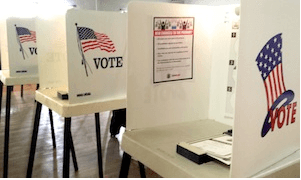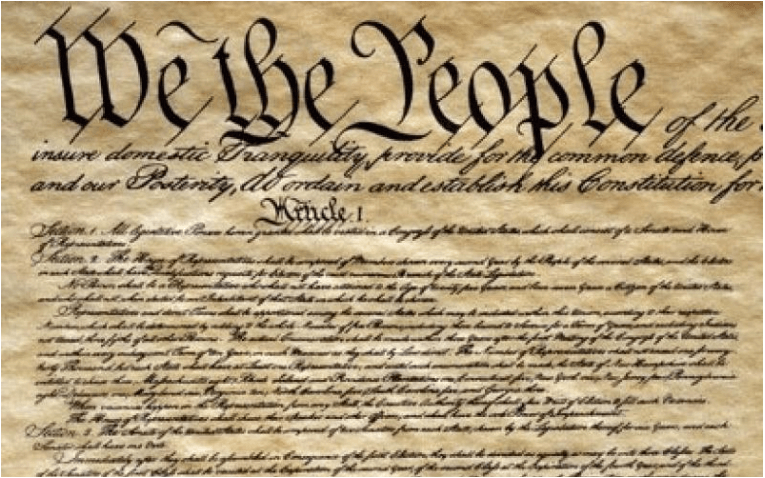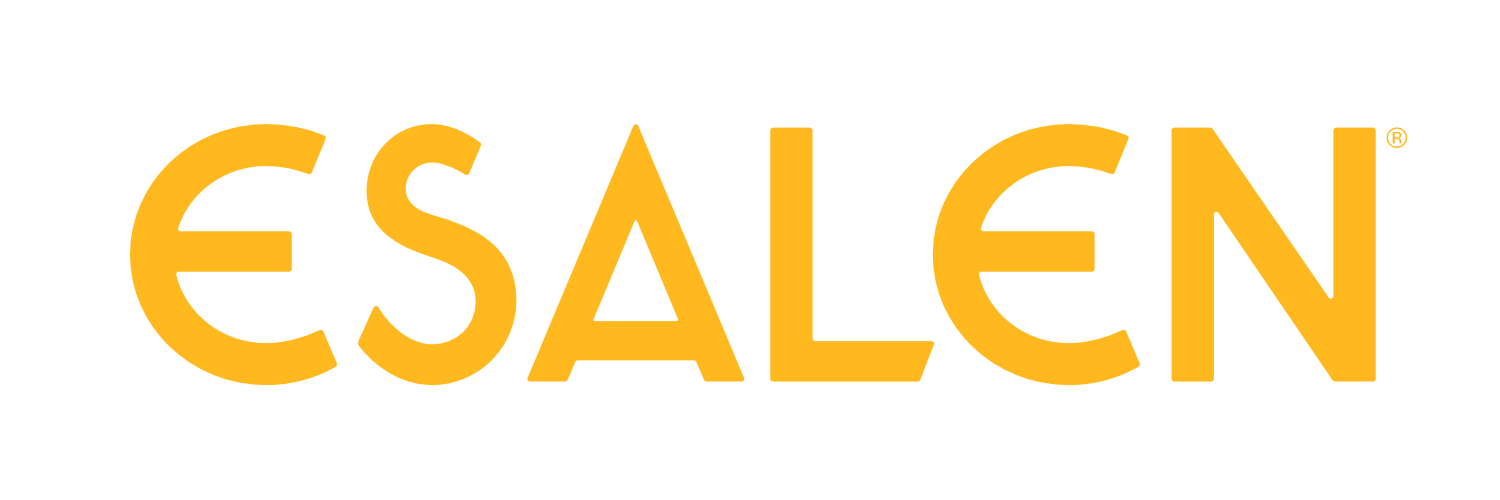Esalen eZine Volume III, January 2015

Less than 60 percent of the eligible electorate vote in general elections. In midterm elections, less than 40 percent vote. In primaries, it is worse. In 2014, Montana had the highest primary turnout at 26 percent and Iowa had the lowest at 10 percent.
The 2014 midterm election average turnout was 36 percent, the lowest in 72 years. Democracy in America is in grave danger.
The country whose constitution was the shining star for the rest of the world has become the laughing stock. Fierce tribalism has ground the legislative bodies to a halt.
Important national issues on infrastructure, tax, immigration, and the budget remain unaddressed. Political parties have fallen prey to ideological extremism and the partisan tribes are put ahead of the country.
Politics has become the art of the impossible. Disgust with, and lack of trust in, political institutions and politicians have turned a huge segment of Americans into cynics fleeing politics for good.
Voters Turned Off by Political Dysfunction
In October 2014, only 14 percent of Americans approved of the way Congress was handling its job, slightly above the 9 percent record low reported earlier in the year. Eligible voters are turned off by the fierce partisan tribalism.
Sure, ideological activists are fired up by partisan rhetoric. Many vote for a candidate as the lesser of two evils to fulfill a civic duty. Some vote for or against a party. More vote as a referendum for or against a sitting president. Even more yawn and are turned off by the lack of political candidates for which they can vote.
In many states, the parties have chosen candidates for us in a small caucus or a convention filled with ideological activists. Cool-headed problem solvers are nowhere in sight. Potential independent and moderate candidates can’t be bothered or can’t win primaries in the current political environment.
Party Politics Creates Oppressive Culture of Conformity
You wonder how politicians feel about themselves when 86 percent of Americans judge them as not doing their job. According to a 2013 NBC News/Wall Street Journal poll, 60 percent of Americans want to fire every single member of Congress. Yet they seem to be just like the decent human beings you meet every day in your workplace, church, and neighborhood.
Now imagine yourself as one of them. The party leaders are all-powerful and demand loyalty and lockstep conformity. Failing to toe the party line, you probably won’t get any committee assignment; you might instead get a humiliating reprimand.
How about party support for the next reelection, which is only two years away? Should you not start thinking and preparing for your next campaign? The culture does not encourage you to socialize with members of the other party.
The three-day work week does not allow you time to interact with them. You do not sit with them on the same side of the Chamber during sessions. Your majority does everything to deprive the minority from the governing process by blocking legislation and using “closed rules” to prohibit debates and amendments by the minority. Or your Senate minority abuses check-and-balance mechanisms such as “holds” and “filibusters” to prevent any majority action it opposes.
Do you really have a choice but to march along with your partisan comrades who vote with their party 90 percent of the time? Peer pressure just caused you to sign a “no tax” pledge and you wonder why you have just made a loyalty vow to an outside interest rather than a vow to the country you are supposed to serve. Every time you return to Washington, you feel you step into a matrix, enveloped in tribal fervor, acting like a robot under the spell of the tribal trance.
At the same time, there are more ideologues among legislators these days, more so in the Republican Party. Sheltered by safe districts, and contemptuous of compromise, they exert pressure on party leadership to undertake extreme and destructive partisan measures such as shutting down the U.S. Government. Party leadership and rank-and-file have mutually reinforced partisanship and intensified the tribal culture.
Values-Identity-Party Convergence is the Cultural Origin of Tribalism
Political parties have become increasingly purified along the singular axis of conservative and liberal ideologies. Years ago, both political parties had a mix of liberals, moderates, and conservatives. Today, the Republican Party consists mostly of conservatives, and the Democratic Party, mostly of liberals.
The great self-sorting of the American electorate took place over the last 50 years, with the most seismic events including the migration of southern whites and religious conservatives to the Republican Party, and blacks to the Democratic Party, enabling, respectively, the Reagan and Obama presidencies.
On the Right, conservatives connected their values of the work ethic, family, and religion to the Republican Party. On the Left, liberals in the Democratic Party became the moral champions of equality for all. From these moral foundations, it did not take much for voters to blend their personal identities into their respective parties.
This alignment of moral values, personal identity, and political party is the single most important convergence in our political history. Politics is no longer about negotiations and compromise among competing interests. Nor is it about pragmatic problem-solving, using ideas that best fit the policy issue at hand.
Political ideologies have now become absolute truths instead of guiding principles in evaluating policies.
Mindless and Choiceless Politics
Our politics are mindless because it is difficult to debate values and identity. Policies are evaluated with monolithic ideological lenses instead of with situational thinking, evidence, and data. A strong sense of righteousness easily yields to the temptation to demonize the other side.
A June 2014 Pew Research Center survey found that 27 percent of Democrats and 36 percent of Republicans see the other party as a threat to the nation’s well-being. No more civility. No more intelligent, multi-perspective debates and discussions on policy in Congress or in the media, which thrives on and profits from the drama of tribal rivalry. There are only battles infused with emotions of righteousness and distorted by a fear that expects the worst from the other side.
Our politics are choice-less because the parties have abused our legislative and electoral processes in ways that limit the choices that voters have in political candidates, and limit the freedom of our legislators to fulfill their responsibilities as our representatives. Low attendance caucuses, conventions, closed primaries, and manipulative redistricting are the perfect tools to ensure election of candidates preferred by ideological activists or special interests within a party, leaving little chance for independent and moderate candidates to win.
We have many choices in goods and services we consume, the careers we pick, the mates we marry, and the companies for which we work. But not in the political arena.
As more people are turned off and decide not to vote, ideological activists and extremists have even higher chances of getting their candidates elected. This, in turn, will intensify partisan tribalism, which will then cause more voters not to vote, further feeding the vicious downward cycle.
What Can We Do About It?
First, expand the choices of political candidates. This can be done by eliminating party meddling with primaries. Stop partisan redistricting, or gerrymandering, by removing partisan influence from all redistricting commissions at the state level. Thirteen states including California have already done that. Eliminate low turnout methods of candidate selection such as caucuses and conventions.
Instead, mandate “open” primaries, coupled with preference voting, where all qualified candidates are ranked on the ballot and the resulting top two candidates compete in the general election. This can encourage more moderate candidates to participate and protect incumbents from more extreme ones.
Second, expand the vote. The majority of Americans are not ideologues. They want the government to solve problems for the country. The more we motivate people to vote, the higher the chance that we elect more moderate and independent candidates.
To encourage maximum electoral participation, we could deploy technology to make it easier and more pleasurable for voters to register and vote, but with safeguards to verify identity and eligibility to minimize fraud.
Third, shift power in the legislative branch from the parties to individuals. Create an environment in which it is easier for legislators to exercise independent judgment and collaborate across the aisle. The current party system wields too much power over the legislative process and the rank and file.
How to fix it? Explore non-partisan congressional leadership and committees. Redefine the roles of leadership as facilitators that enable legislation rather than maximizing partisan triumphs.
The “open rule” should be mandated to allow amendments and debates to weigh options by all members of Congress. If enough members of Congress, regardless of party affiliation, sponsor a bill, it should be allowed an up-or-down vote on the House floor.
In the Senate, rules relating to “holds” and filibusters should be revised to make their use more moderate and transparent to discourage obstructionist use by the minority. Allow mixed seating in sessions, and schedule legislators to have more time in Washington to interact and build personal relationships with colleagues from both parties.
Last, as individual citizens, let’s take responsibility for whom we send to Washington. Support movements at the state level for expanded vote and open primaries with preference voting. Let us consciously seek to be more open-minded to different ideologies instead of banishing ourselves to echo chambers, i.e., only talking to friends and reading media with similar thinking.
The Internet is a wonderful tool to expand our minds. Instead, it has been used to confirm our beliefs and biases. Vote for the candidates who share similar values and views on policies, but also consider their ability and willingness to solve problems and reach across the aisle.
Watch out for the words and actions of narrow-minded ideologues and opposition demonizers on the campaign trail. After all, democracy does not function well without informed citizens who are discerning enough to vote for politicians who can make government work.
I am not against ideological polarization and the political parties, which have served useful purposes most of the time since the founding of our nation. I am against partisan tribalism and gridlock.
Unless we are able to reverse it, our nation will continue to spiral down the values-identity-party rabbit hole and render irreparable damage to our representative democracy. Let’s save it before it is too late.
Disclaimer: The views and opinions expressed in this eZine are those of the authors and do not necessarily reflect the official policy or position of Esalen Institute.

SAM YAU, Chairman of the Board of the Esalen Institute, is a recognized business leader and strategist, known for delivering rapid value creation for companies that need strategic repositioning for growth or significant turnaround in challenging times.
His diversified career has spanned many industries, including semiconductor, specialty retailing, computer hardware and software, medical management, and for‑profit education.
Sam currently serves as a director on the boards of SRS Labs and Multi-Fineline Electronix. He is a director of the Center for Integrative Medicine at the College of Medicine, University of Irvine, and the past Chairman of the Forum.
The Esalen eZine is edited and curated by Esalen Board member Jay Ogilvy. To make comments or suggestions, please email him at j.a.ogilvy@gmail.com or write to:
Esalen eZine, c/o Jay Ogilvy
3771 Rio Rd. Suite 101
Carmel, CA 93923

